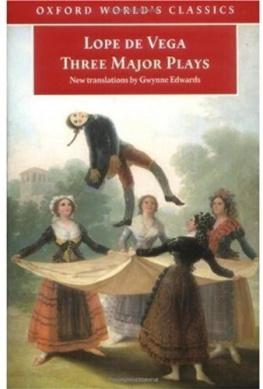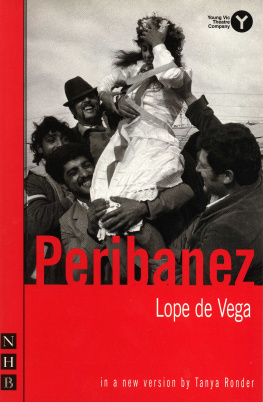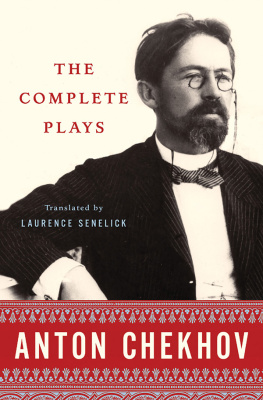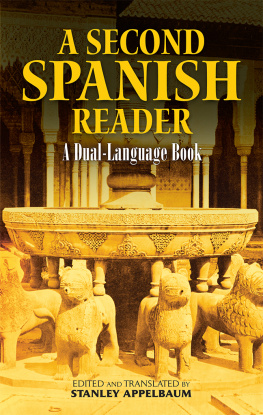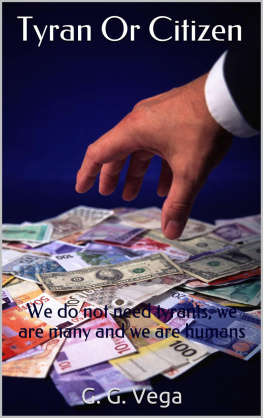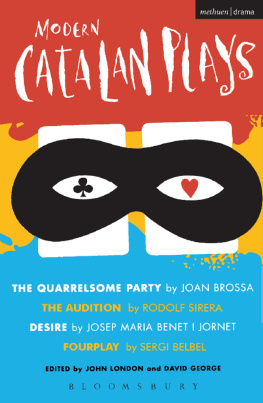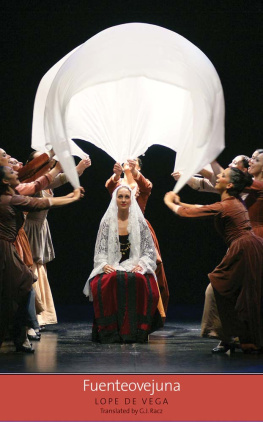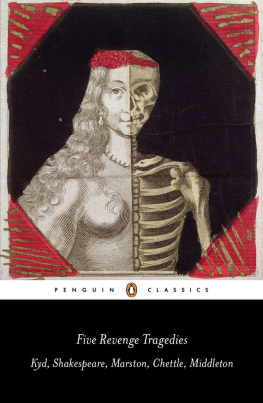
Great Clarendon Street, Oxford 0x2 6DP
Oxford University Press is a department of the University of Oxford.
It furthers the University's objective of excellence in research, scholarship,
and education by publishing worldwide in
Oxford New York
Athens Auckland Bangkok Bogot Buenos Aires Calcutta
Cape Town Chennai Dar es Salaam Delhi Florence Hong Kong Istanbul
Karachi Kuala Lumpur Madrid Melbourne Mexico City Mumbai
Nairobi Paris Sao Paulo Shanghai Singapore Taipei Tokyo Toronto Warsaw
with associated companies in Berlin Ibadan
Oxford is a registered trade mark of Oxford University Press
in the UK and in certain other countries
Published in the United States
by Oxford University Press Inc., New York
Translation and Editorial Matter Gwynne Edwards 1999
The moral rights of the author have been asserted
Database right Oxford University Press (maker)
First published as an Oxford Worlds Classics paperback 1999
All rights reserved. No part of this publication may be reproduced,
stored in a retrieval system, or transmitted, in any form or by any means,
without the prior permission in writing of Oxford University Press,
or as expressly permitted by law, or under terms agreed with the appropriate
reprographics rights organizations. Enquiries concerning reproduction
outside the scope of the above should be sent to the Rights Department,
Oxford University Press, at the address above
You must not circulate this book in any other binding or cover
and you must impose this same condition on any acquirer
British Library Cataloguing in Publication Data
Data available
Library of Congress Cataloging in Publication Data
Vega, Lope de, 15621635.
[Plays. English. Selections)
Three major plays/Lope de Vega; translated with an introduction
and notes by Gwynne Edwards.
(Oxford Worlds classics)
I. Edwards, Gwynne. II. Vega, Lope de, 15621635. Fuente
Ovcjuna. English. III. Vega, Lope de, 15621635. Caballero de
Olmedo. English. IV. Vega, Lope de, 15621635. Castigo sin
venganza. English. V. Title. VI. Scries: Oxford Worlds classics
(Oxford Universitv Press)
PQ6459. A2 1999 862. 3dc21 9826991
ISBN13: 9780192833372
Typeset by Ace Filmsctting Ltd, Fromc, Somerset
Printed in Great Britain by
Clays Ltd, St Ives pie
OXFORD WORLDS CLASSICS
For over 100 years Oxford Worlds Classics have brought readers closer to the worlds great literature. Now with over 700 titlesfrom the 4, 000-year-old myths of Mesopotamia to the twentieth centurys greatest novelsthe series makes available lesser-known as well as celebrated writing.
The pocket-sized hardbacks of the early years contained introductions by Virginia Woolf, T. S. Eliot, Graham Greene and other literary figures which enriched the experience of reading. Today the series is recognized for its fine scholarship and reliability in texts that span world literature, drama and poetry religion, philosophy and politics. Each edition includes perceptive commentary and essential background information to meet the changing needs of readers
OXFORD WORLDS CLASSICS

LOPE DE VEGA
Fuente Ovejuna
The Knight from Olmedo
Punishment Without Revenge

Translated with an Introduction and Notes by
GWYNNE EDWARDS

OXFORD WORLDS CLASSICS
THREE MAJOR PLAYS
LOPE DE VEGA (15021635) was one of the three great dramatists of the most vital political and cultural period in Spanish history, the Golden Age, when Spain ruled much of the western world. Born in Madrid, where he spent most of his life, i . ope's passionate and impulsive nature led to his involvement in numerous sexual relationships, even after he took holy orders at the age of 51, and often landed him in serious trouble with the law.
Lope's sexual appetites were equalled only by his energy as a writer. During a literary career of some fifty-five years, he wrote both poetry and prose and, it was claimed, more than 2, 000 plays. At a time when the theatre was beginning to flourish in Spain, Lope largely shaped the three-act play, with its exciting action, vivid characterization, and mixture of serious and comic elements, which would be adopted by his contemporaries and successors.
Drawing for his material on history, the Bible, and contemporary life, Lope's theatre had a vitality which thrilled contemporary audiences and made him the most popular dramatist of his day. Fuente Ovejuna, The Knight from Olmedo and Punishment Without Revenge are three of Lope's greatest plays and exemplify not only the characteristic themes of his dramalove, honour, revengebut also his consummate artistry.
GWYNNE EDWARDS is Professor of Spanish at the University of Wales, Aberystwyth. He has written critical studies of Lorca and Bunuel, as well as of Spanish theatre and cinema in general. He has also translated more than forty Spanish plays, of which more than twenty have been published and performed professionally.
CONTENTS
INTRODUCTION
The Golden Age
The Spanish Golden Age, in which Lope de Vega was one of the brightest jewels, embraced, broadly speaking, the sixteenth and seventeenth centuries, when Spain was, in territorial terms, the most powerful nation in the world. In 1492, with the conquest of Granada, the Catholic Kings, Ferdinand and Isabella, had succeeded in ending the Muslim domination of Spain which
In 1556 Charles, exhausted by his efforts, abdicated in favour of his son Philip II, who ruled Spain almost until the end of the sixteenth century. Less imperialist in outlook than his father, Philip's dream, nevertheless, was to be the sole ruler of a Catholic Europe, as well as to spread the Catholic faith in the New World, regardless of the cruelty and suffering which this might involve. By the end of the sixteenth century, however, the image of a powerful and successful country scarcely concealed the underlying reality of serious and rapid decline, due in no small measure to the economic demands of maintaining a large empire. The wealth imported from the New World, though vast, proved insufficient, and led to inflation in Spain itself. High taxation became crippling, Spanish industry gradually declined, and agriculture was seriously affected as country people abandoned the land in the hope of a better life in the towns and cities. When Philip II died in 1598, his prophecy that God had given him many kingdoms but no son fit to rule over them was uncannily accurate.
Philip III (15981619) and his successor Philip IV (161965) lost little time in handing over power to a succession of powerful royal favourites in order to spend their leisure in often facile amusements. During their reigns Spanish influence in Europe was slowly whittled away, while at home the economic situation reached a stage where devaluation became common, the cost of collecting taxes became greater than the value of the taxes themselves, and neither soldiers serving overseas nor the palace guards at home received their wages. When Philip IV died in 1665 he was replaced by his wife Mariana of Austria, acting as regent until their son, Charles II, came of age. The result of constant inbreeding, he was, however, a sickly individual whose poor health in a way mirrored that of his country. His death in 1700 at the age of 40 marked not only the end of Spain's Golden Age but also the end of the Spanish Habsburg dynasty.


